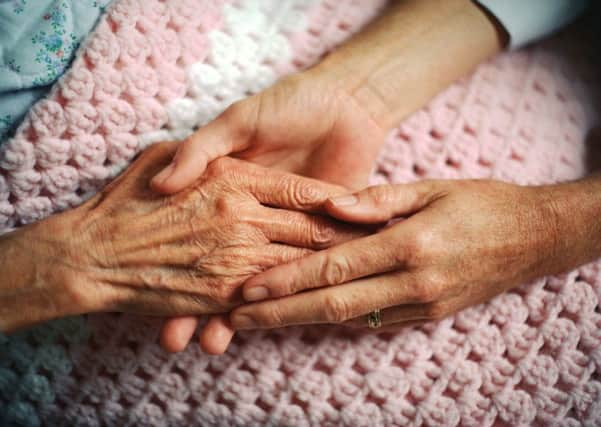Step change sought to prioritise arthritis


Around one in seven people in the UK live with arthritis – a condition that can cause pain, stiffness and swelling in the joints - and this figure is expected to rise to one in four by 2030. It is the leading cause of pain and disability; one in five people consult their GP about a musculoskeletal problem like arthritis each year, amounting to more than 100,000 consultations for arthritis every day. Around 15,000 children and young people live with arthritis.
Globally, Rheumatic and Musculoskeletal Diseases (RMDs) are the biggest cause of sick leave and premature retirement. In the UK, almost 31 million working days were lost in 2013 due to sickness absence caused by a musculoskeletal condition.
Advertisement
Hide AdAdvertisement
Hide AdTo mark the 20th World Arthritis Day today, Arthritis Action is calling on policymakers around the world to prioritise arthritis within their health systems.
Dr Wendy Holden, consultant rheumatologist at North Hampshire Hospitals NHS Foundation Trust and Arthritis Action’s medical advisor, said: “On this momentous day in the history of arthritis, our message to the healthcare community is to be brave and bold.
“It is time for policymakers at all levels to pull their heads from the sand and address arthritis as a priority. It is time for a step change in the way we view arthritis, time to give people living in pain a voice, and importantly, time to listen to what they have to say.”
Established by Arthritis and Rheumatism International (ARI), World Arthritis Day is a global initiative that aims to raise awareness of the burden of rheumatic and musculoskeletal diseases amongst healthcare practitioners, leaders and policymakers and the steps which can be taken to ease it.
Advertisement
Hide AdAdvertisement
Hide AdCandida Doyle, former keyboard player for the band Pulp and long-time Arthritis Action member, described her experience with arthritis and the significance of World Arthritis Day, saying: “I experienced stiffness, a dry mouth, and a lost appetite a month after my 16th birthday. One-and-a-half years later I was diagnosed with arthritis by a rheumatologist and was told that I could be in a wheelchair by the time I’m 20. This was very hard to hear. I was in denial between the ages of 16-30 and didn’t tell anyone.
“At the age of 39 I stopped playing with Pulp and travelled around the world. Twelve years on and I’ve now almost come to accept the fact that I have arthritis, and I am still sorting out how I feel about it. I do tai chi, yoga, and see an osteopath, which all help me with my arthritis.
“Awareness days such as World Arthritis Day are important as they give us the chance to reach people and say that you can have a life with arthritis – it’s not the end of the world – and that there’s help available.”
To mark its launch in June, Arthritis Action published new research, showing that people with arthritis feel isolated, scared about the future and don’t want to ask family, friends or doctors for help.
Advertisement
Hide AdAdvertisement
Hide AdThe researchers surveyed 777 people living with arthritis - both osteoarthritis and inflammatory arthritis - and held in-depth interviews with GPs and senior public health professionals. The research revealed that the care pathway for osteoarthritis is particularly limited. The main gaps are in physical therapies and pain-clinics; with long waiting times often meaning that the patient does not receive the required treatment during a flare-up in their condition.
Shantel Irwin, chief executive of Arthritis Action, said: “Interestingly, around half of our survey respondents felt that they needed to take charge of self-managing their condition because the NHS is over-stretched. This only reinforces the very reason Arthritis Action was born: to help people with arthritis better manage their condition and endure less pain.
“Today, Arthritis Action is lending its support to World Arthritis Day and calls on health communities everywhere to prioritise arthritis and empower people to take control of their lives, manage their condition and reduce the need for medical intervention.”